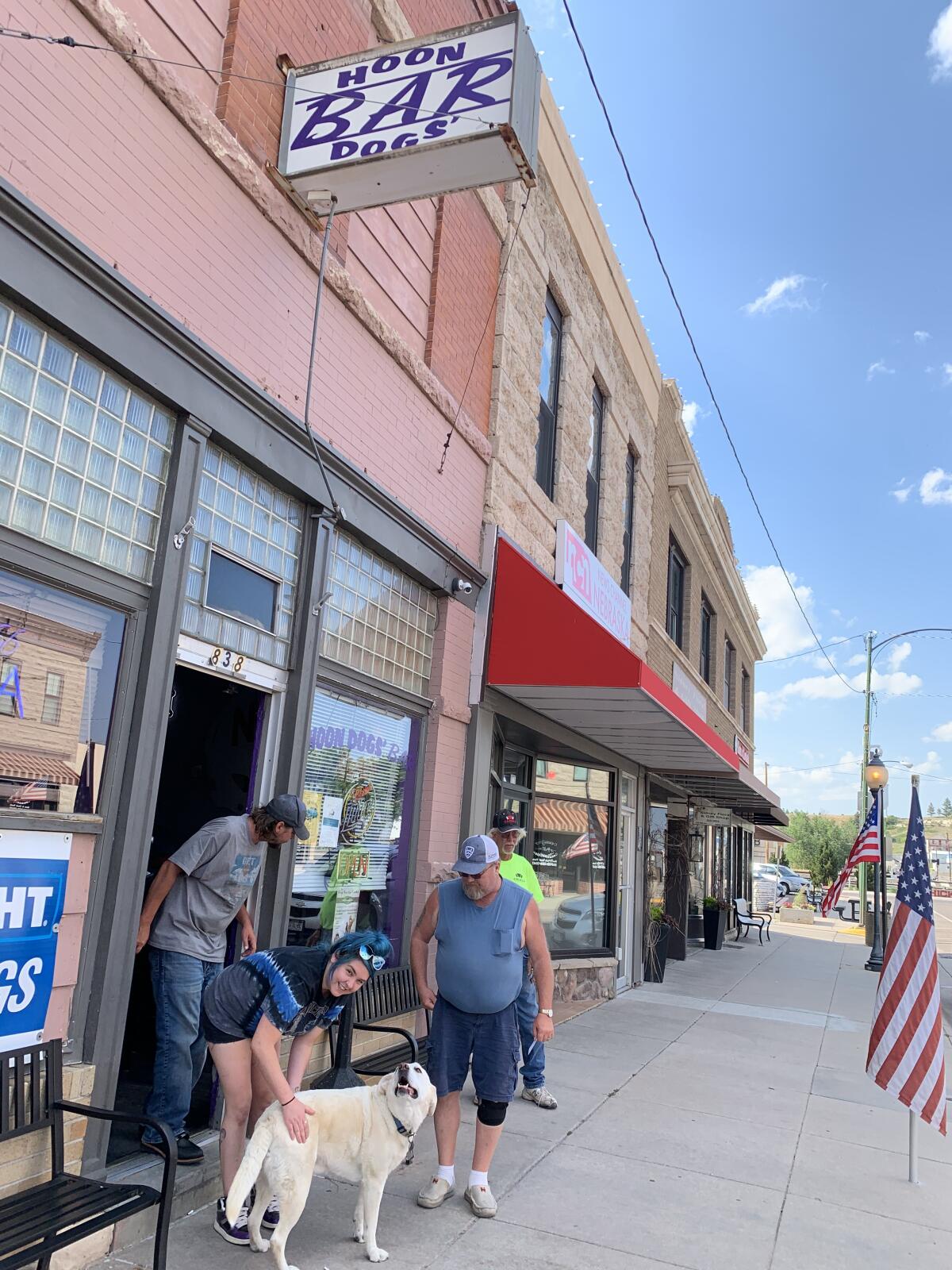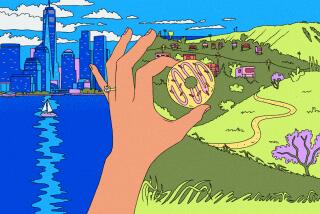Letters to the Editor: Finding humanity in our fellow Americans on a cross-country road trip

- Share via
To the editor: I loved reporter Diana Marcum’s story about her road trip from Fresno to Maine to visit her cancer-stricken friend and the photos taken of the people she met. Her experiences along the way were inspiring and hopeful in such a divided country as ours right now.
Marcum experienced both the cultural differences and the underlying humanity in the people she met. Reading accounts of close-up encounters such as Marcum’s is one way to understand each other and possibly reduce some of the divisiveness in our country.
When she finally met up with her friend in Maine, it seemed she was a somewhat transformed person. I would love to read more of how this experience impacted her over time.
Evelyn Goodman, Culver City
..
To the editor: As I sat Saturday morning next to my dog, who was either going to have a leg amputated or be put down due to osteosarcoma, Marcum’s was the story I needed to start my day. She is a cogent writer who brought me into the story emotionally without making me sob.
I will never make that drive from California to the East Coast, but I appreciate that she did, why she did it, and that she took her dog.
It was disheartening to read about the closed-mindedness of some people. On the other hand, it was lovely to read about the family of Somali immigrants in Postville, Iowa.
We all must get on with our lives despite sorrow that intrudes.
Pam Evans, Norwalk
..
To the editor: Thanks for the thought-provoking article. I fear that many of your readers will be more irritated than thoughtful over the whole matter.
As a graduate student in Indianapolis between 1963 and 1966, my wife and I saw changes to our heartland already occurring. Corporate America was taking control of family farms, and once-thriving towns were suffering plummeting populations. Our household furniture during those four years came largely from rural estate auctions. Immigrants seem finally to be reversing the trend.
I was curious, though, upon learning about the undocumented workers at the meat-packing plant being rounded up and carted away, why Marcum did not say whether she asked anyone if it was some kind of inside job. I wonder what local suspicion might have been on the matter.
In any case, I hope that Marcum’s article stimulates thoughtful discussion. Please keep these fine pieces coming.
Oliver Seely, Lakewood
More to Read
A cure for the common opinion
Get thought-provoking perspectives with our weekly newsletter.
You may occasionally receive promotional content from the Los Angeles Times.










